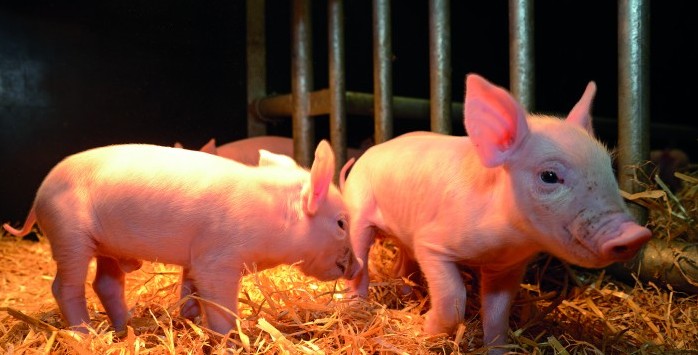Gene-editing technologies offer opportunities to curb swine flu virus on farms and reduce the risk of a pandemic by increasing vaccine effectiveness and producing pigs resistant to swine flu, a review of research studies published in Porcine Health Management has suggested.
The review by scientists from the Roslin Institute suggests that gene editing tools could complement current strategies for controlling swine flu, which causes respiratory illness, fever, loss of appetite and impacts on productivity.
Gene-editing technologies could be used to precisely alter genes in pigs that flu viruses use to establish infection. The same method could also be applied in vaccine production systems to reduce manufacturing costs, which would likely improve efficacy by increasing uptake.
The review also found that preventive farming practices that strengthen animal welfare are most effective when focusing on preventing virus on farms rather than clearing outbreaks.
It recommends implementing track-and-trace quarantining of all new animals on any farm is, although recognises that this can be difficult to execute as farms increase animal density in response to rising consumer demand for pork.
“Swine flu causes significant economic burden on farmers and is a real threat to human health,” commented Mr Hamish Salvesen from the Roslin Institute. “If gene-editing tools are approved by regulatory bodies and society, they could bring real benefit in complementing existing measures to prevent infection on farms across the world.
The research was published in Porcine Health Management and was funded by the Biotechnology and Biological Sciences Research Council, part of UK Research and Innovation, and Genus PIC.




